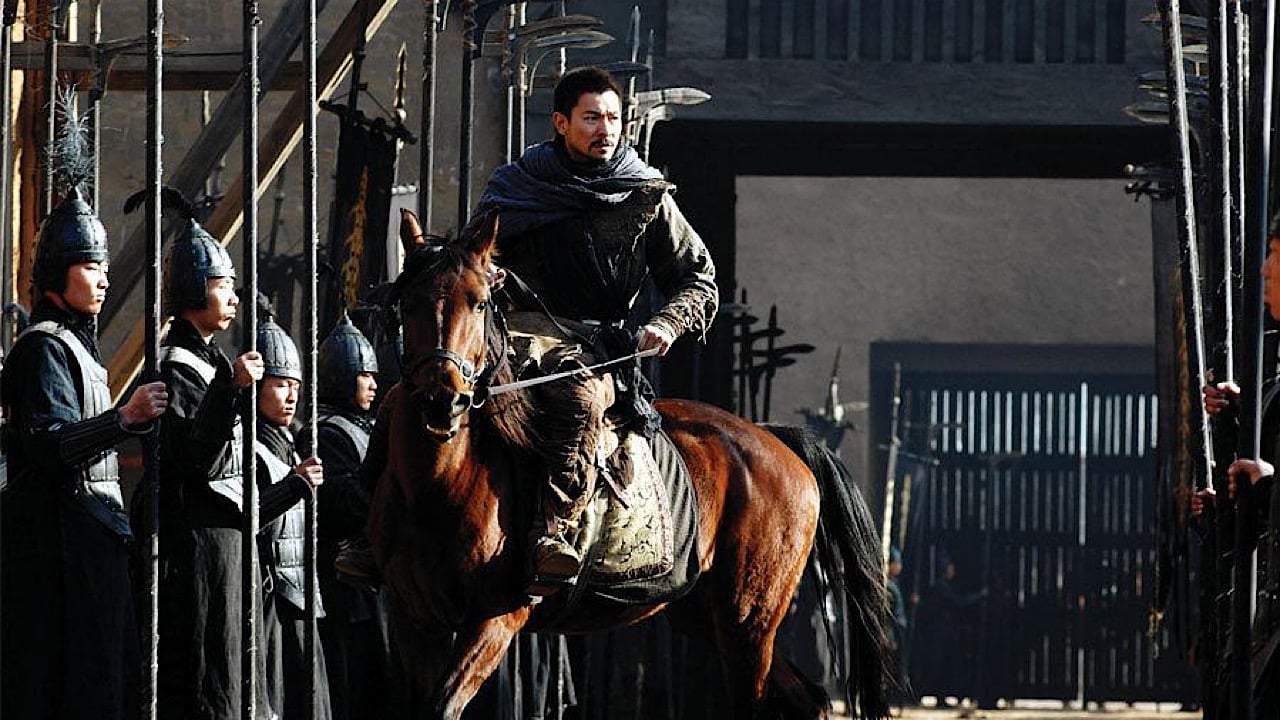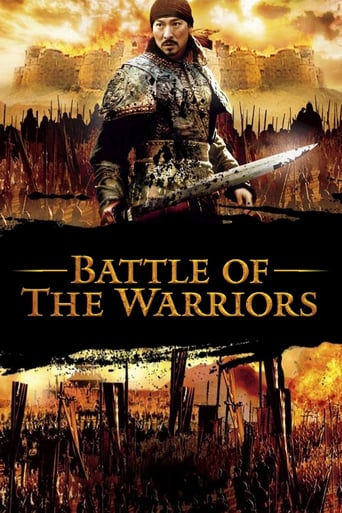OttoVonB
This film is based on Bokko, one of the finest Japanese manga ever crafted, about one man - Ge Li - sent to defend a besieged city in ancient China. Andy Lau here plays the main character, effectively downplaying his super-stardom with a delicate, subdued and humble performance. Apart from him, we get epic battles with twists, a couple of very nifty strategic ideas, and all the grievances and politics of the besieged city of Liang come to a boiling point. Ge Li has to fight enemies from within and without.Chinese filmmaking often draws upon that nation's very rich literary heritage, and it's often exciting to see the best it has to offer when that heritage blends with great aesthetics backed up by an important budget. "Hero" comes to mind of course, probably as the pinnacle of the genre. But even that film belies a worrying trend in mainstream Chinese film: ideological bullying. Back to this in a second...Technically, the film is of course very competently made, the period and city are created to perfection, even if the visual style is never more than generic. Where things begin to go sour is in the characterizations. The source manga has very rich, complex characters, and while it is unfair to condemn a film under 3 hours for failing to capture the wealth of a 400+ page graphic novel, one wonders why the filmmakers did not cut content for the sake of depth rather than the opposite. A lot happens very quickly, and it is very hard to care for anyone but Lau's Ge Li. This problem is further compounded by the apparently chronic irrationality of many characters: they act in frustrating ways, seemingly just because the film requires them to in order to complicate the hero's predicament.On the previously mentioned ideological front, things become downright risible. The source manga is a tribute to the value of the individual and the vices of the ruling class. On the other hand, the film suggests (word for word in one scene) that only unity will end war in China, and the leader of the invading army is made into a far more compelling human being than any of the inhabitants of the besieged city. In the end, the film is a case study in how filmmaking by committee leads to bland and idiotic results: nonexistent character, crude ideological content, spectacle for its own sake and a total absence of personality.But it has two good things going for it: first, it might get you to read the infinitely superior manga. The second reason is a man named Andy Lau.
kosmasp
Andy Lau is the main actor in this one, although not listed first on the IMDb cast list here. His role is really great and his character arc even better (that is, if you get the message behind all the fighting and so forth). It might not be apparent to everyone, but this movie has something to say. And that's what I loved about it. The fight scenes were well executed as well, but it's more about the characters than the action.Of course this is not everyone's cup of tea, as you can see by the voting and comments here. But if you like Asian cinema (Easterns so to speak), than you should give this a shot!
DICK STEEL
The warring states of Ancient China serve as a backdrop for this pan-Asian war epic, starring the charismatic Andy Lau. Going by the literal translation of the Chinese title, it's "Ink War", alluding to the fact that much of the battles in this movie relies a lot more on superior strategy in order to overcome a mammoth battle against a Goliath, with a 4,000 population up against the might of a 100,000 strong well-trained army.Based on a Japanese novel/manga Bokkou, Battle of Wits fictionalizes one of the episodes during 370BC, where China was still divided, and each nation seizing opportunities to usurp the other. Those familiar with history will know that eventually, the kingdom of Qin will ultimately unite the Middle Kingdom for the first time. However, the story sets its sights on the Kingdom of Zhao leading an attack on the smaller state of Liang. In its defence lies a mysterious man from the Mozhi tribe known as Ge Li (Andy Lau of course), who galvanizes Liang's population to stage a stand against what seemingly looks like impossible odds.While war movies of long, long time ago have been flogged to death recently by Hollywood, with films like Alexander, Troy, and fantasy epics like the Lord of the Rings series, Asian movies have rarely scratched the surface until of late, with Battle of Wits leading the charge, and coming right up are at least two film adaptations of episodes from the Romance of the Three Kingdom novels. For those expecting fantastical and romanticized wu-xia martial arts moves, you will be disappointed, as this movie is rooted much in reality.Given the epic scale of this production, it still rings a sense of familiarity in its war scenes, and I thought that shooting most of them in middle-close range, loses much of its grandeur. The big spectacles shown have nothing new that will take your breath away, especially after Hollywood has plundered such productions. Nonetheless it augurs well that Battle of Wits managed to pull off a production of this nature, and has, surprise, a competent storyline to carry it through.There is a strong anti-war message that got worn on the sleeves Ge Li, as smart and cunning as he is, he's the reluctant hero, willing to make sacrifices for the greater good. He finds no pleasure in war, nor killings, but in order to save the masses, he must do what he has to thwart efforts of bloodthirsty kingdoms. He's is the message of "loving thy enemy", naturally not shared by the incompetent leadership in Liang.And since time immemorial, you always have the incompetents possessing the heart of insolence, with characters of sloth and ill intentions, straddling from a high horse. Inept leaders silencing their opposition through calls of treason is a tactic all too familiar, which makes it all the more despondent as you ponder about that aged old Chinese proverb about there being nothing wrong in looking after your personal interests first, instead of bothering with the affairs of others. Ge Li faces both the task of winning over the people's trust (since they're committing the state's defences to his organization), and the inevitable unappreciative, thankless task of having to do just that.As I mentioned, do not expect to see "Qing Gong" or fancy swordplay. Rather I was in awe with the delivery of strategies and counter strategies in having two warring factions pitting their wits against each other. Sometimes they come rather unexpectedly, and will leave you with a smile, like when you're wondering just what everyone is up to when they close their eyes en masse.Accompanied by an excellent soundtrack, the movie could be split down two halves, and while the first centered on the macro affairs, a more micro, personal affairs of the heart managed to creep in between Ge Li and Yi Yue (the gorgeous Fan Bingbing), a calvary officer, and though their romance sometimes stalled the pace of the movie, it added some gravitas to Ge Li the Man, questioning his strong beliefs on being unselfish, and made the finale all the more heart-wrenching to watch.Featuring stars like Wu Ma and Nicky Wu (when was the last time I saw them in a movie) and Korean actor Ahn Sung-kee, this certainly is the movie to watch this week. Forget about them animated penguins, treat yourself to an epic worthy of your time, and well worth a weekend ticket.

